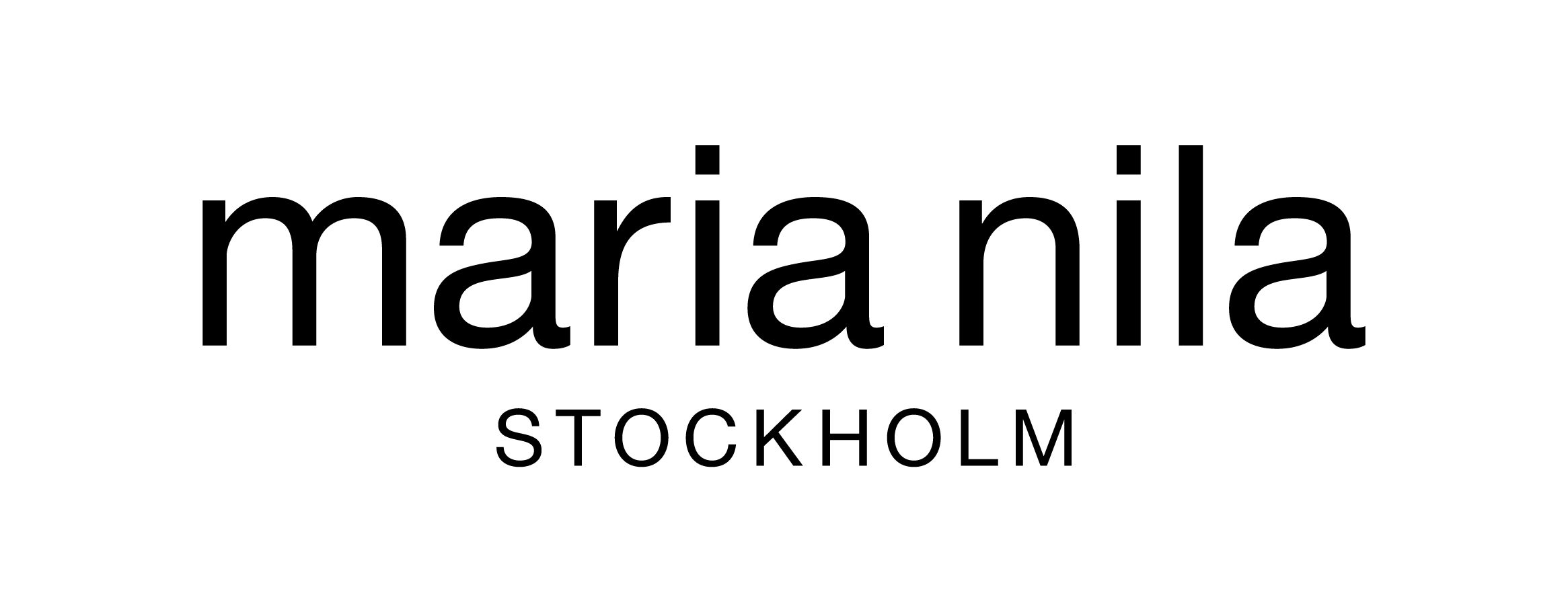

Maria Nila AB

Skåne County, Sweden
August 2024
Personal care products
Manufacturing
Albania,
Australia,
Austria,
Belgium,
Bulgaria,
Canada,
Croatia (Hrvatska),
Cyprus,
Czech Republic,
Denmark,
Estonia,
Finland,
France,
Germany,
Greece,
Hungary,
Iceland,
Ireland,
Italy,
Kuwait,
Latvia,
Liechtenstein,
Lithuania,
Luxembourg,
Malta,
Netherlands The,
Norway,
Poland,
Portugal,
Slovakia,
Slovenia,
Spain,
Sweden,
Switzerland,
Turkey,
United Arab Emirates,
United Kingdom,
United States
Established in 1999, Maria Nila proudly presents a full range of 100% vegan professional haircare, styling, and colour, produced in our factory in Sweden – shipped to salons and consumers in 40 countries around the world. Our products are developed out of our love for animals, which along with our ambitious charity program and climate compensation forms a foundation for our business that acts in solidarity with our wildlife, nature, and communities. By providing high-quality products produced in Sweden to professionals and consumers around the world, we make it easier for everyone to take a step toward a friendlier future.
Overall B Impact Score
Governance 8.4
Governance evaluates a company's overall mission, engagement around its social/environmental impact, ethics, and transparency. This section also evaluates the ability of a company to protect their mission and formally consider stakeholders in decision making through their corporate structure (e.g. benefit corporation) or corporate governing documents.
What is this? A company with an Impact Business Model is intentionally designed to create a specific positive outcome for one of its stakeholders - such as workers, community, environment, or customers.
Workers 20.6
Workers evaluates a company’s contributions to its employees’ financial security, health & safety, wellness, career development, and engagement & satisfaction. In addition, this section recognizes business models designed to benefit workers, such as companies that are at least 40% owned by non-executive employees and those that have workforce development programs to support individuals with barriers to employment.
Community 38.2
Community evaluates a company’s engagement with and impact on the communities in which it operates, hires from, and sources from. Topics include diversity, equity & inclusion, economic impact, civic engagement, charitable giving, and supply chain management. In addition, this section recognizes business models that are designed to address specific community-oriented problems, such as poverty alleviation through fair trade sourcing or distribution via microenterprises, producer cooperative models, locally focused economic development, and formal charitable giving commitments.
What is this? A company with an Impact Business Model is intentionally designed to create a specific positive outcome for one of its stakeholders - such as workers, community, environment, or customers.
Environment 43.6
Environment evaluates a company’s overall environmental management practices as well as its impact on the air, climate, water, land, and biodiversity. This includes the direct impact of a company’s operations and, when applicable its supply chain and distribution channels. This section also recognizes companies with environmentally innovative production processes and those that sell products or services that have a positive environmental impact. Some examples might include products and services that create renewable energy, reduce consumption or waste, conserve land or wildlife, provide less toxic alternatives to the market, or educate people about environmental problems.
What is this? A company with an Impact Business Model is intentionally designed to create a specific positive outcome for one of its stakeholders - such as workers, community, environment, or customers.
Customers 3.3
Customers evaluates a company’s stewardship of its customers through the quality of its products and services, ethical marketing, data privacy and security, and feedback channels. In addition, this section recognizes products or services that are designed to address a particular social problem for or through its customers, such as health or educational products, arts & media products, serving underserved customers/clients, and services that improve the social impact of other businesses or organizations.